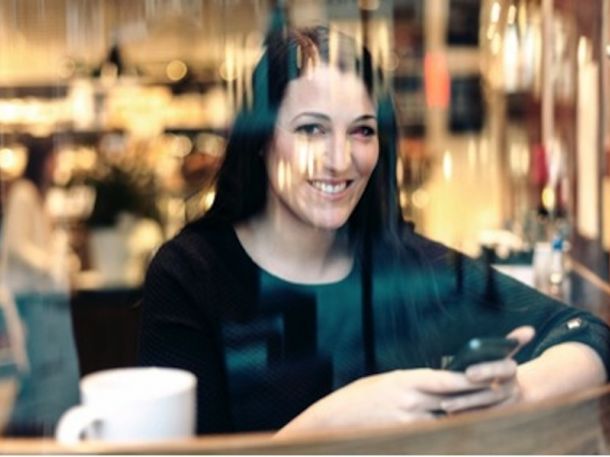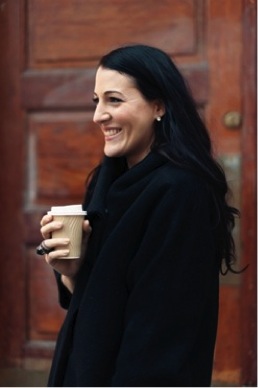
There are currently 1.2 million iPhone apps in the IOS app store. Hanna Aase, a young entrepreneur from Norway, is the founder of one of them. Wonderloop, while still in its initial phase, has already garnered significant attention and media coverage. The invite-only app launched in October 2013 and is a social network dedicated to connecting people globally. Users upload short introductory videos of themselves and search for other people with similar interests. The video profile requirement intends to replace the static images and bios on traditional social networks and provide users with a more accurate impression of who a person really is. Hanna has dedicated her life to Wonderloop and is confident that it will become the next big social network. Though constantly on the go, Hanna was able to find a free hour to tell us about her journey as an international entrepreneur in the pursuit of global success.
How did you get the idea for Wonderloop? Was there anything in particular that inspired it?
Absolutely. The idea is inspired by my own life. I grew up in a small town in Norway and never felt as much part of the world as I wanted to be. As a child, watching Oprah on TV inspired me to think about how I could connect the world together. My conclusion was that people always want to see who a person really is before wanting to make a real life connection. If anyone can see another person with a click of a button, it does not matter if you live in a small town in Germany or Japan. Wonderloop gives everybody in the world a voice and a face and I believe that it will dramatically change the ways in which we make things happen.
 The differences between Norway and New York are vast. Why did you choose to launch Wonderloop in New York and what was the experience like?
The differences between Norway and New York are vast. Why did you choose to launch Wonderloop in New York and what was the experience like?
Wonderloop is a platform that requires people to upload videos of themselves, and videos are very transparent and revealing. We wanted people in the initial user base who are vibrant, who do interesting things, are social and internationally minded in order to create a social community. We hoped that launching in New York would give us a great initial community on the app. It was definitely a challenge learning how to spread a product and how to launch a company. It is hard to launch a company in general, but especially in a country you haven’t been in before.
What do you think are the main differences between starting up in New York and Norway?
The biggest difference for me is that in Norway we are not used to selling ourselves, we are not used to the “bragging.” In New York it sometimes seems like you have to add some layers of who you are and what you do to get your point across. That is not how we do it in Norway, where we have a stronger appreciation for humility. So initially, it was hard for me to get through to people because they didn’t believe that I was actually doing something.
So how do you finally cut through?
You find a middle way. You understand that you need to step it up a notch in terms of presenting what you do, but at the same time you need to be able to filter out “the bullshit” and discern what is real and what is not real.

What do you see as the greatest challenge of being an international entrepreneur in New York and how did you overcome it?
It is figuring out who does what in entrepreneurship. It was challenging knowing who the angels and VC’s are, where you can find the best developers, how to knock on the media’s door and whether to use PR agencies or not. We took some risks with Wonderloop in that we hired a company that did the media for us in order to add some strength to the company.Unfortunately, it did not give us the results we hoped for so it was an expensive but rich lesson. We also hired a local advisor, which helped us get a feel of how the New York scene works and we attended a lot of media conferences.
Have you noticed any challenges specific to being a female entrepreneur in a male-dominated tech environment?
Yes, absolutely. It takes extra energy for certain investors to get over that you are a woman and to take you seriously as an entrepreneur with ambition to build the next big tech company. I specifically remember one meeting with an investor where I could tell that he spoke to me in a very different way than he would have had I been a man. It was not a fun experience.
 Do you find it easier to get funding in the US?
Do you find it easier to get funding in the US?
Getting funding for an iPhone app is, without a doubt, easier in the US. In the US, an iPhone app can potentially turn out to be a billion dollar company. In Norway we don’t have any culture around or history of an iPhone app that has developed into a successful international tech company. There are no examples to show for it.
What three pieces of advice would you give to other internationals that are launching their digital businesses today?
1. Give away equity to an advisory board that have been in New York forever. In reality, very few people are willing to help you in an extended way without there being anything in it for them. It is just the way it is, and especially in New York.
2. Don’t underestimate the value of a good party. New York is a very business-minded place and sometimes the best way to get to know people is to actually go out and not just talk about work.
3. Do Yoga. Jivamukti Yoga has saved my life this past year. When you work so many hours and are in a foreign country where you don’t know that many people you need something that centers you when things are tough.
What are the top 5 apps on your phone?
Wonderloop: A social network that connects people globally through video profiles.
Stay.com: An app that lets you create your own personal travel guide.
iTranslate : Can translate words, phrases, and text in over 80 languages.
Swarm: App by Foursquare. Find friends nearby and check in to share your location.
Brewster: Syncs your contacts across all social networks and devices.

